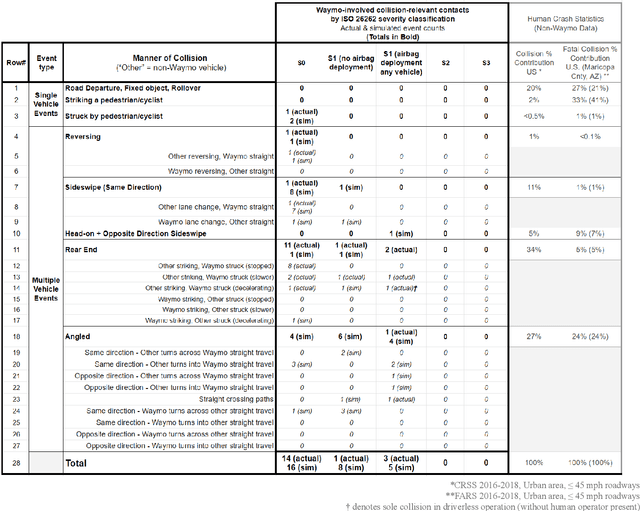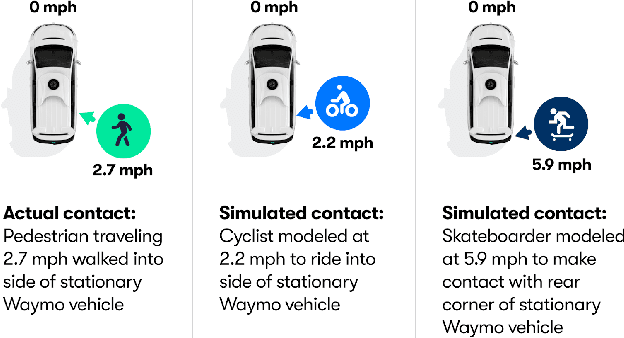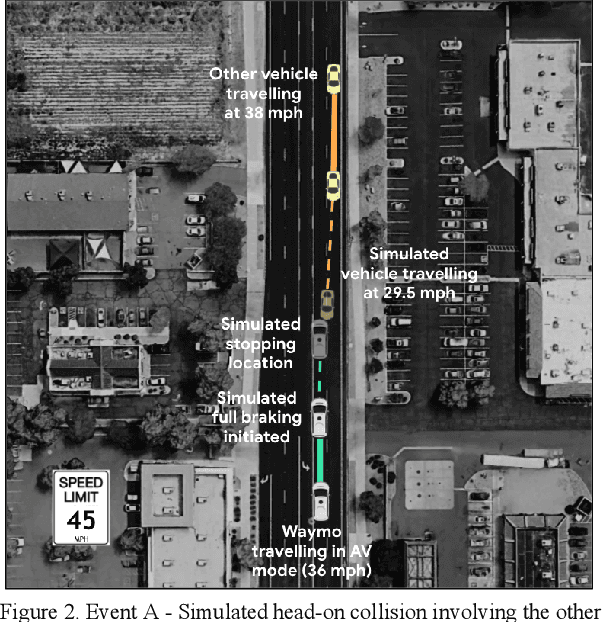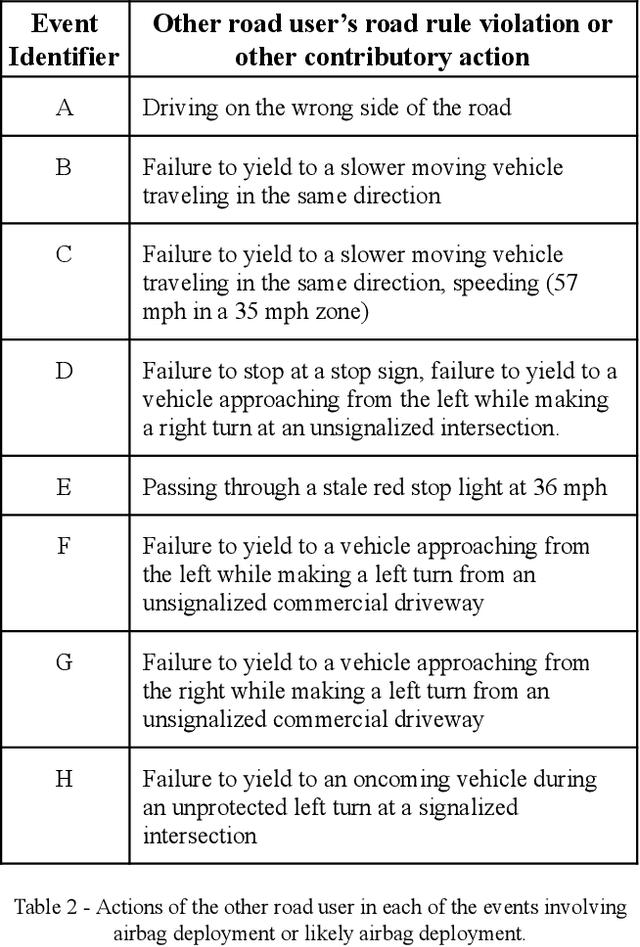Matthew Schwall
Waymo Public Road Safety Performance Data
Oct 30, 2020



Abstract:Waymo's mission to reduce traffic injuries and fatalities and improve mobility for all has led us to expand deployment of automated vehicles on public roads without a human driver behind the wheel. As part of this process, Waymo is committed to providing the public with informative and relevant data regarding the demonstrated safety of Waymo's automated driving system, which we call the Waymo Driver. The data presented in this paper represents more than 6.1 million miles of automated driving in the Phoenix, Arizona metropolitan area, including operations with a trained operator behind the steering wheel from calendar year 2019 and 65,000 miles of driverless operation without a human behind the steering wheel from 2019 and the first nine months of 2020. The paper includes every collision and minor contact experienced during these operations as well as every predicted contact identified using Waymo's counterfactual, what if, simulation of events had the vehicle's trained operator not disengaged automated driving. There were 47 contact events that occurred over this time period, consisting of 18 actual and 29 simulated contact events, none of which would be expected to result in severe or life threatening injuries. This paper presents the collision typology and severity for each actual and simulated event, along with diagrams depicting each of the most significant events. Nearly all the events involved one or more road rule violations or other errors by a human driver or road user, including all eight of the most severe events, which we define as involving actual or expected airbag deployment in any involved vehicle. When compared to national collision statistics, the Waymo Driver completely avoided certain collision modes that human driven vehicles are frequently involved in, including road departure and collisions with fixed objects.
 Add to Chrome
Add to Chrome Add to Firefox
Add to Firefox Add to Edge
Add to Edge